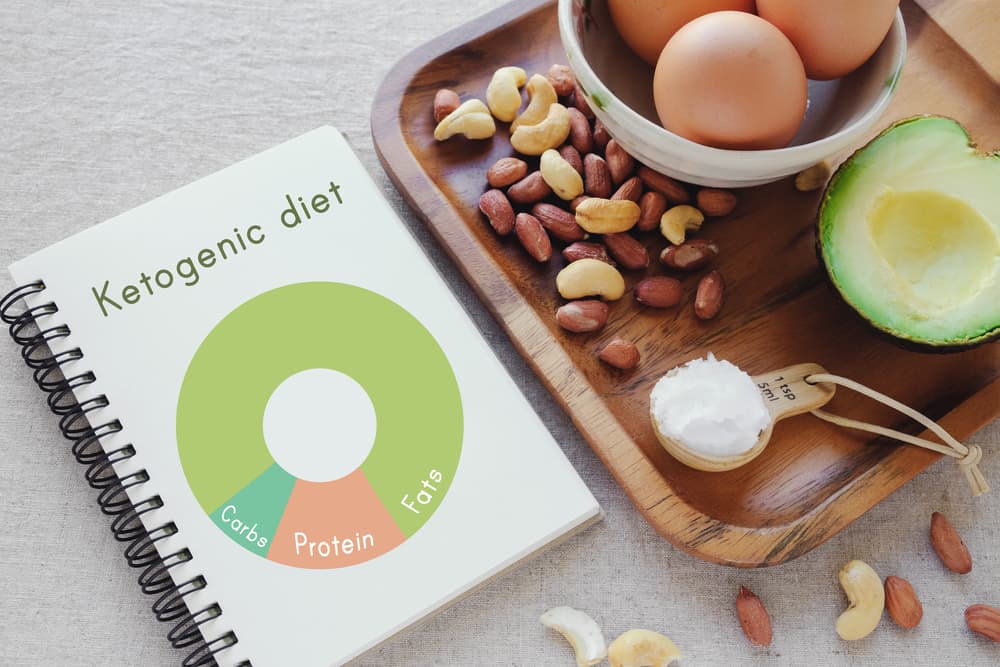Contents:
- Medical Video: Pregnancy Tips : How to Increase Fetal Weight
- Why is a baby's birth weight so important?
- How do you increase fetal weight that is still lacking?
- 1. Eat more calories
- 2. Eat a vegetable and fruit salad after the main meal
- 3. Not that you can eat junk food
- 4. Do light exercise
- 5. Get enough rest
- 6. Reduce stress and anxiety
- 7. Take your prenatal vitamins
Medical Video: Pregnancy Tips : How to Increase Fetal Weight
When pregnant, your nutritional needs increase because you also have to feed the fetus in the womb. However, to meet your needs while pregnant may not be as easy as imagined. Some mothers may have experienced a lack of weight gain as they should. This then affects the weight of the fetus in the womb which is also lacking. However, don't worry, before your baby is born, meaning you still have the opportunity to improve your condition and your fetus in the womb.
Why is a baby's birth weight so important?
The increase in maternal weight during pregnancy will affect the weight of the fetus in the womb and then this will also affect the baby's weight at birth. This baby's weight at birth is very important because it is a good predictor of your baby's health. Babies who have a low birth weight (LBW) are more difficult to fight infection and control their body temperature at birth. He is also more likely to suffer from certain diseases when he is an adult.
Therefore, it is important for you to increase your weight during pregnancy to a sufficient extent. Remember, too much weight gain during pregnancy is also not good. You need to know that the baby has accelerated weight gain during the third trimester of pregnancy. In other words, your weight in the third trimester of pregnancy may also increase, because of the increased weight of the fetus, also because of the increase in fat reserves, fluid, blood volume, amniotic fluid, large uterus, and placenta.
How do you increase fetal weight that is still lacking?
Some mothers may find it difficult to gain weight during pregnancy, but some may find it very easy to gain weight during pregnancy. This can be caused by a variety of reasons, such as metabolism in the body of the mother, mother having difficulty eating due to loss of appetite, body problems, morning sickness, or other problems.
Less weight gain during pregnancy not only affects the mother, but also affects the fetus in the womb. The fetus can have a smaller weight for gestational age (small for gestational age), experiencing limited growth in the uterus (intrauterine growth retardation), or premature birth.
So, if you haven't achieved weight gain during pregnancy, it's recommended that you try to improve your diet. You can try the following ways to increase your weight and also the weight of your fetus.
1. Eat more calories
If you have done it according to you, but you still experience a slight increase in body weight, meaning you still need to increase the number of your calories by taking more food. If you lose your appetite, you should focus on the number of calories contained in food even if only in small portions. Choose foods that contain high levels of healthy fats, such as avocados, nuts and seeds (whole wheat bread, whole wheat pasta, peas, or kidney beans).
2. Eat a vegetable and fruit salad after the main meal
If you are used to eating fruit before eating, you should move the time to after eating. Eating fruit or vegetables containing fiber before the main meal will only eliminate your appetite because fiber can make you full longer.
3. Not that you can eat junk food
Although you are advised to switch to foods that are high in calories, but also pay attention to the nutrients contained in these foods. Junk food it contains high calories, but contains poor nutrition, so it is not healthy for pregnant women. Besides junk food, also should avoid foods that contain fat and high cholesterol, fried foods, and foods that are preserved.
Continue to consider eating foods with balanced nutrition. Vegetables, fruits, meat, fish, nuts, seeds, and carbohydrates are foods that are good for you and your fetus. Eat as many as 3-4 main meals per day and add a snack between the main meals to support your weight gain and the fetus. Don't forget to drink enough (8-10 glasses per day) to avoid dehydration.
4. Do light exercise
To support your health, you should also do light exercise. Walking every morning or evening is enough to make your body more refreshed and fit.
5. Get enough rest
Get used to getting enough sleep at night (at least 8 hours). Get enough rest to give you energy and keep your body fresh. If you feel tired faster than usual during the day, you should reduce your activity and take your nap time whenever possible.
6. Reduce stress and anxiety
When you are stressed or anxious, you may overeat or eat less. Both of these will affect you and the fetus on the negative side. It's best to keep calm so you can control your appetite and diet.
7. Take your prenatal vitamins
Don't forget to take your prenatal vitamins as recommended by your doctor. Prenatal vitamins can help meet your nutritional needs that you may not get from food, thus helping to support the health of your pregnancy and ensuring that your fetus will be sufficient.
READ ALSO
- 10 Tips for Returning to Ideal Body Weight After Childbirth
- 5 Ways to Control Weight During Pregnancy
- What Happens to Your Body After Childbirth?












